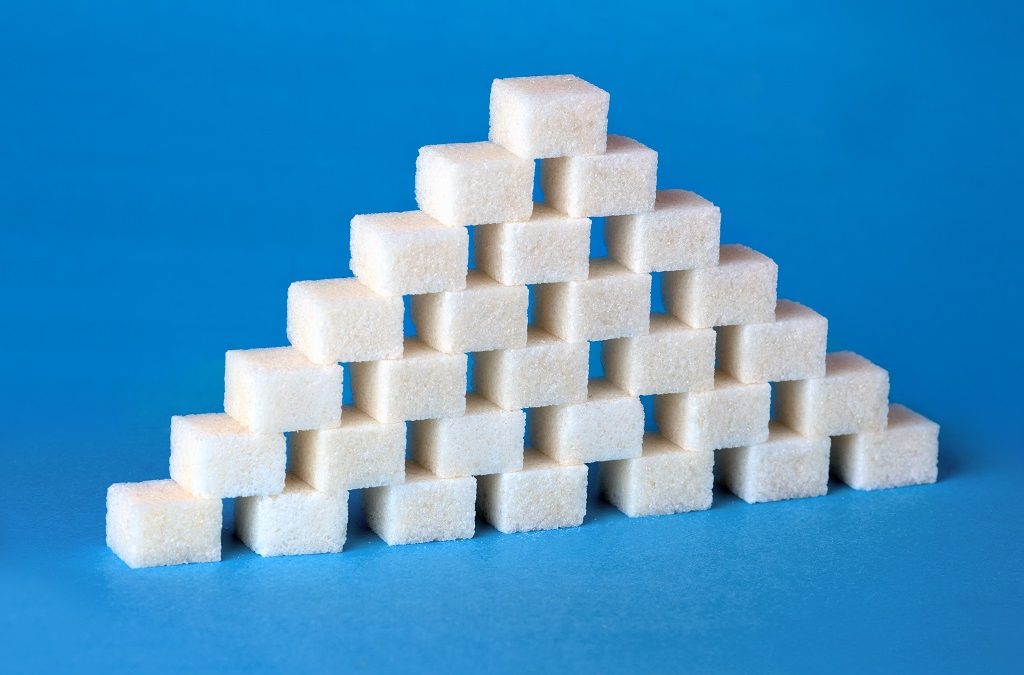Saccharin was discovered accidentally in a lab in 1879, and soon became a focus of attention as a supposedly safe alternative to sugar. Throughout the early part of the 20th century, it was the only artificial sweetener available, and despite its bitter taste, it was seen as a beneficial substance for diabetics and those who wanted to cut down on sugar for health reasons.
The reasons were two-fold:
- to lose weight
- to eat less processed sugar because there were concerns that it was high in calories, bad for teeth, could be leading to diabetes, and so on.
Fast forward to the present day, and we have epidemic levels of obesity and Type 2 diabetes. Could saccharin be to blame?
Does saccharin raise blood sugar levels?
Those who grew up with saccharin, brand name Sweet’n’Low, are the very people with the highest incidence rate of obesity and Type 2 diabetes.
Although marketed as a ‘calorie-free’ sweetener, several recent studies have found that saccharin actually raises blood glucose levels. It is thought that these effects are due to changes in bacteria in the digestive tract that alter the way food is digested and utilized. These changes are believed to be caused by saccharin.
The chemicals alter brain chemistry as well, interfering with the processes involved in signaling that a person feels satisfied after they have eaten. It also interferes with the function of 2 key hormones, insulin and leptin, causing disrupted signaling that can lead to weight gain, especially around the waist, and metabolic syndrome and insulin resistance, which are forerunners of diabetes.
Safety considerations
The use of saccharin in human food has been plagued by safety concerns in recent years. During the early 1970s, studies on laboratory rats linked saccharin with the development of bladder cancer in rodents. As a result, the U.S. Food and Drug Administration (FDA) tried to ban it. Public outcry led to the US Congress intervening and allowing saccharin to remain on the market as long as all food containing it was labeled with a health warning.
In 2000, the warning labels on saccharin-sweetened products were removed. The following year, the FDA reversed its position, declaring saccharin safe for consumption, even it has been linked to:
- Allergic reactions
- Headaches
- Breathing difficulties
- Diarrhea
- Skin problems
- Cancer
and more.
Bottom line: There are other safe sweeteners out there that don’t interfere with blood sugar or pose a risk of cancer. The best alternative is stevia, which comes from a South American plant and has no impact on blood sugar, and no calories. Steer clear of saccharin and see what a difference it can make to your health.

